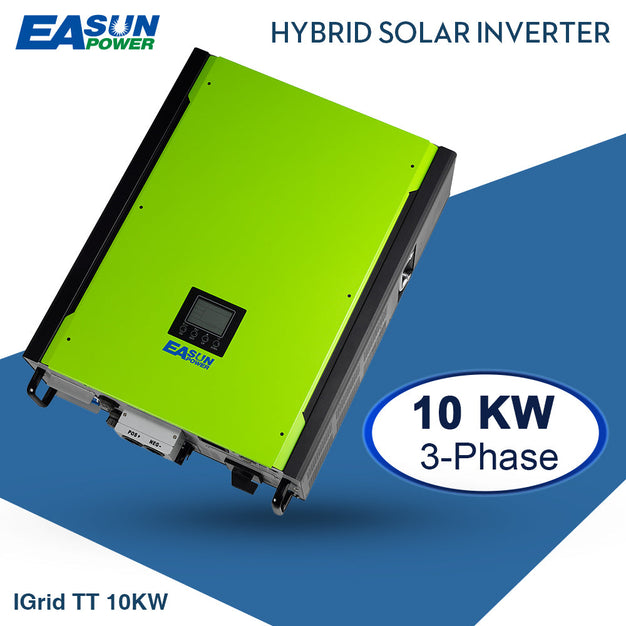Unveiling the Secrets: Why a Hybrid Solar Inverter Could Be Your Home's Best Investment!
As homeowners increasingly seek sustainable energy solutions, hybrid solar inverters have gained significant popularity. These innovative devices not only harness solar power but also offer versatility by integrating battery storage, making them a compelling option for energy efficiency and self-sufficiency. In today’s world, where energy costs are rising and environmental concerns are paramount, investing in a hybrid solar inverter can lead to substantial benefits. From reducing your electricity bills to minimizing your carbon footprint, a hybrid solar inverter is more than just an appliance; it’s a smart investment in your home’s future.

Understanding Hybrid Solar Inverters
A hybrid solar inverter is a sophisticated device that combines the functionalities of a traditional inverter with the added capability of managing battery storage. Unlike standard inverters that only convert direct current (DC) electricity generated by solar panels into alternating current (AC) for home use, hybrid inverters can also draw energy from batteries when solar power is insufficient. This technology enables homeowners to tap into their stored energy during peak usage times or outages, providing a reliable power supply. Typically, hybrid systems consist of solar panels, an inverter, batteries, and a management system that optimizes energy flow, ensuring that your home operates efficiently and sustainably.
Key Features of the Best Hybrid Solar Inverters
When selecting a hybrid solar inverter for residential use, several key features should be considered to ensure optimal performance. Firstly, efficiency ratings are critical; look for inverters that boast high efficiency levels, typically above 90%, to maximize energy conversion. Additionally, battery integration is paramount; the best hybrid inverters allow for easy connection with various battery types, ensuring seamless energy storage. Smart technology is another essential feature—many modern hybrid inverters offer mobile app connectivity, enabling homeowners to monitor energy production and consumption in real-time. Furthermore, features like load management, grid-tie capabilities, and safety certifications can greatly enhance the functionality of a hybrid solar inverter, providing peace of mind and optimal energy management.
Benefits of Using a Hybrid Solar Inverter
The advantages of hybrid solar inverters extend beyond mere energy generation. One of the most significant benefits is energy independence; by harnessing solar power and utilizing battery storage, homeowners can reduce their reliance on the grid, especially during peak hours when electricity prices soar. This leads to significant cost savings on electricity bills over time. Additionally, hybrid systems contribute to a reduced carbon footprint, aligning with global sustainability goals. Moreover, the long-term financial benefits are noteworthy; while the initial investment may be higher than traditional systems, many homeowners find that the return on investment through savings and potential incentives makes hybrid solar inverters an economically sound choice.
Considerations Before Buying a Hybrid Solar Inverter
Before making a purchase, there are several important factors to consider to ensure you choose the right hybrid solar inverter for your needs. First, assess system compatibility; not all inverters work with every solar panel or battery type, so it’s vital to ensure that your components are compatible. Installation requirements should also be evaluated; some systems may require professional installation, which can add to the overall cost. Warranty options are another critical consideration; look for inverters that offer comprehensive warranties to protect your investment. Lastly, take the time to assess your personal energy needs and consider future expansion; understanding your current and anticipated energy demands will help you select a system that can grow with you.
Making an Informed Investment
In conclusion, hybrid solar inverters present an excellent opportunity for homeowners looking to invest in sustainable energy solutions. With their unique capabilities, including energy independence, cost savings, and environmental benefits, these systems are an attractive option for modern living. By carefully evaluating your energy needs and considering the features that best align with your lifestyle, you can make an informed decision that not only benefits your home but also contributes positively to the environment. Embrace the future of energy with a hybrid solar inverter—it might just be the best investment for your home!



